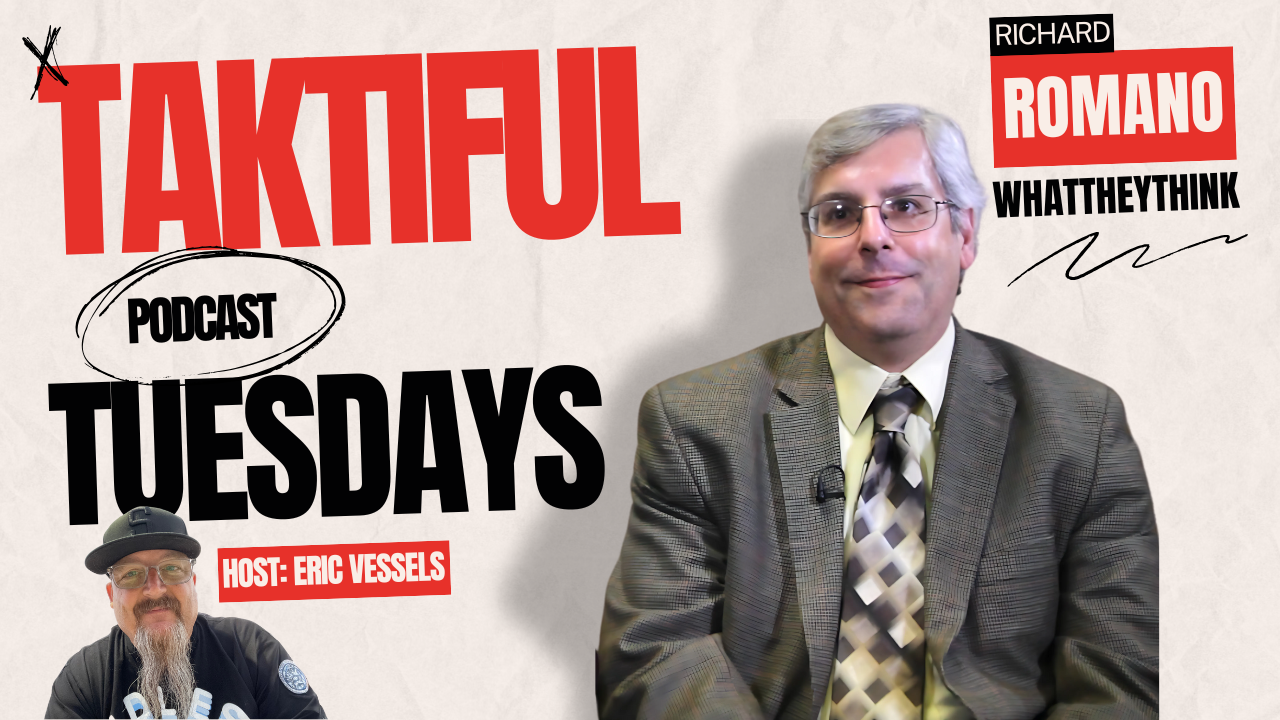By Deborah Hamilton
The folding carton industry has lost a legend. Alan Crane (1924-2014) was a visionary, mentor and cherished friend to many, including members and suppliers of the Independent Carton Group (ICG), who remember him fondly. Despite the brutally cold weather in suburban Chicago on Feb. 26, with temperatures hovering in the single digits for most of the day, over 400 people had traveled from all over the country to pay their respects to Alan at his standing-room-only funeral service – a testament to the many lives he touched both inside and outside the industry.
“Alan was one of the greatest men I’ve ever known. When he walked into a room, you knew that a special person was there. He’s going to be missed by anyone fortunate enough to have known him,” Charlie Hirsh, owner of Accurate Box Company, said about his long-time dear friend.
Accurate Box was one of the ICG’s earliest members. Charlie Hirsh introduced Alan Crane to the ICG when the group was still in its infancy. Alan’s company, Crane Carton, became an ICG member in 1984, and it remained a member until 2001, after Caraustar Industries acquired it. Alan served multiple terms on the ICG’s board of directors. Because he was known and revered by so many and he was so knowledgeable about the packaging industry, Alan was often a special guest at ICG meetings long after his membership ended, and even into his retirement years.
Alan founded Crane Carton Company in 1962 with two employees and a modest 20,000 sq. ft. facility. During its successful 38-year run, with Alan at the helm, Crane Carton became a premier independent folding carton manufacturer. It employed 220 people and had reached $46 million in annual sales just prior to its acquisition by Caraustar in 2000. The 200,000 sq. ft. facility at 555 N. Tripp Avenue in Chicago that was once home to Crane Carton is still in operation today, under Caraustar’s ownership, and many of Crane’s former employees still work there.
“To my dad, it was always about the people,” said Bruce Crane, the youngest of Alan’s three children. (Alan also had three stepchildren he loved as his own as well as 15 grandchildren and two great-grandchildren. He was happily married to his supportive wife Lori for 41 years.) Bruce joined his father at Crane Carton in 1982 and became chief operating officer in 1994. (Alan’s daughters, Beth and Jennifer, also worked for Crane Carton for a period of time, in customer service and quality assurance.) Following the acquisition, Alan and Bruce both stayed on for four years to maintain leadership continuity; they served as senior manager and general manager, respectively, of Caraustar Chicago Carton. In August 2002, Alan said to an industry reporter, “If we hadn’t told our employees that we had sold the company, they wouldn’t even have known.”
But they did know. In fact, they knew lots of things about Crane Carton. And they knew because Alan and Bruce and the rest of the management team told the staff things most people in their positions wouldn’t have. During an interview with a writer at Crain’s Chicago Business in early 2000, Alan spoke of the culture he had in mind when he started the company. “I wanted a place where everyone would pull together, contribute to solutions. I wanted them to understand a profit and loss statement, to read a balance sheet, to know how profits are made,” he said.
At the suggestion of Crane Carton’s quality assurance manager and campaigning by several on the management team, Alan agreed to set up classrooms for staff training. He enlisted faculty from DePaul University to teach English, math and computer skills; vendors came in to train on equipment maintenance; and Alan himself taught the staff about finance – and he would literally walk through the company’s P&L line by line. “What good is a profit-sharing plan if you’re not going to share the P&L? He’d get up there and talk about how things like spoilage and downtime affected profits, how money falls down to the bottom line, and he’d seek input about equipment investments,” said Bruce. “Dad also believed managers were there to support employees, so if we were teaching a course to the third shift, we did so during the third shift, like at 2 a.m.”
Alan was a graduate of Northwestern University, which he attended after serving for three years in the U.S. Army during World War II, and he firmly believed in continuous improvement – not just as a business philosophy, but as a way of life. “My dad was a world-class skier. He could ski any run in the world, skiing until he was 80, but he still attended ski schools any chance he got because he believed there were always nuances and new technologies for him to learn,” said Bruce. “He was constantly trying to better himself, and he pushed others to do the same. It worked because he walked the talk.”
Alan had a unique management style. He was known for “management by walking around” long before the term was ever coined. “The first thing he did every day was walk through the plant and greet people by name,” said Bruce. “He knew all the machines, and he was quick to make suggestions if he thought productivity could be improved. And somehow, the culture he created was such that the supervisors didn’t see this as micromanaging; they appreciated the extra set of eyes and respected his expertise. Ultimately, our people were very loyal, and he trusted them.”
Bruce recalled the time he and his dad asked four employees to make a $5 million decision. They were in the market for a new printing press, and they were trying to decide between the two large German manufacturers. Since there was no U.S. installation of either press at the time, both companies wanted Alan and Bruce to travel to Germany. Both wooed them by offering weeklong all-expense-paid trips to the two men and their wives (Lori and Laura, respectively).
“We told these two companies that if they were willing to do that, then we would be sending four different people in our place,” said Bruce. “We sent our plant manager, our printing department manager and two pressmen, one of which had never been on a plane before. They took boxboard over to run tests, then they came back, ran quality checks, wrote a report and made the decision. The first time my dad and I saw the press was the day it was delivered.” Bruce stressed that this and similar instances made employees feel empowered and also thoroughly vested. “Years later that press was still the cleanest and most well-maintained one I had ever seen,” he said.
With such a unique culture, it’s certainly no surprise that in 2000 Crane Carton was voted the “Best Workplace in America” by the Printing Industries of America. “We had extremely low turnover,” said Bruce, “and that’s an understatement. During our acquisition due diligence process, Caraustar’s actuary was tripped up by the number we presented as our employees’ average tenure. A handful had been around since the very early days, and the overall average was quite high. We had to pull a lot of records to prove that the high number we stated was correct.”
“I knew Alan for about ten years, and I remember him coming through my manufacturing plant one time, and how complimentary he was,” said Robert Codo, president of Accord Carton, an ICG member. “Because of my company’s geographic proximity to the old Crane Carton, I now have a couple of employees who used to work for Alan. They have described him as being really smart, reasonable and fair, and said that they loved working with him.”
Alan was a strong force, not just within his own company, but also within the industry. He is credited as being one of the “Most Influential People in the Folding Carton Industry in the 20th Century.” Part of the reason Alan was so influential was because he kept his company on the cutting-edge, continually investing in training, equipment and quality assurance. (For example, Crane Carton became ISO 9000 certified long before it was common practice in the industry.)
“Whenever we held an ICG meeting at Crane Carton, we would all be so impressed with the facility. Alan always had the newest presses,” said Andrew Willie, executive director emeritus of the ICG and one of the group’s five founding members. “We were amazed at the speeds he could run, and perhaps equally as fast as his equipment was his willingness to share his knowledge.”
Alan was known as a mentor to a great many people. “Dad formed unique relationships with a couple of the publishing houses in Chicago producing packaging trade magazines,” explained Bruce. “Whenever one of the publishers hired someone new – in editorial or art production – that individual would spend a week at Crane Carton. They would shadow our people, learn about the equipment and get to know our supervisors. We developed a syllabus for them, and over time, we had a couple dozen of these publishers’ new employees through our doors.”
John Norgard, president of Converting Technology, an ICG-approved supplier, also found a mentor in Alan Crane. “Before I started this business, Alan spent some time telling me all the ins and outs of running a business, and that discussion meant a lot to me,” he recalled. “He was a pioneer. His foresight and determination forged an industry that provided stable employment and advancement opportunities for many people. Because of Alan’s openness, I now think about my generation’s responsibility to pass on our knowledge and experience to the next generation of workers who have chosen a career path in the packaging industry.”
Andrew Willie said Alan was a valuable ICG member, with his many contacts and his thought-leadership. “He recommended other companies that would be a good fit for our group, and one of his greatest contributions was the idea of a buying consortium,” he said. “Alan was the first to bring it up – how we could expand the benefits of the group by leveraging our collective buying power.” His vision came to fruition when the ICG’s purchasing program launched in 1999.
“Alan left a positive influence on everybody he met. He was a very bright and successful man. He had the respect and affection of his entire workforce, all of whom he considered like family. And though he was a fierce competitor in everything he set out to do, he was also a giver. He gave of himself and helped other people every chance he got,” said Charlie Hirsh.
Alan was active in his faith community and supported many charities. He was also a champion for the deaf and co-founder of the Hebrew Seminary, a Rabbinical School for Deaf and Hearing.
“I’m blessed to have such wonderful memories of my dad – from my days as a young boy taking the bus to the plant to visit him there on a Saturday, to working side-by-side with him for over 22 years, to my amazing family life with this huge loving family he built and nurtured with my stepmom – and I know I’m not alone, because I had the honor and privilege of witnessing the ways he touched people’s lives everywhere he went. He was an extraordinary man,” said Bruce.














